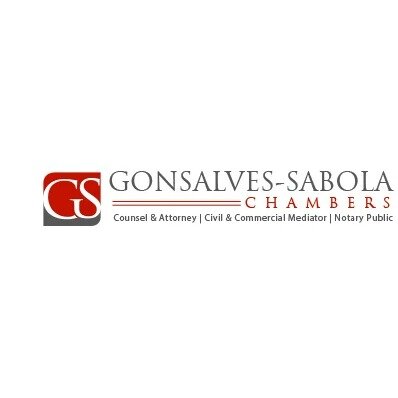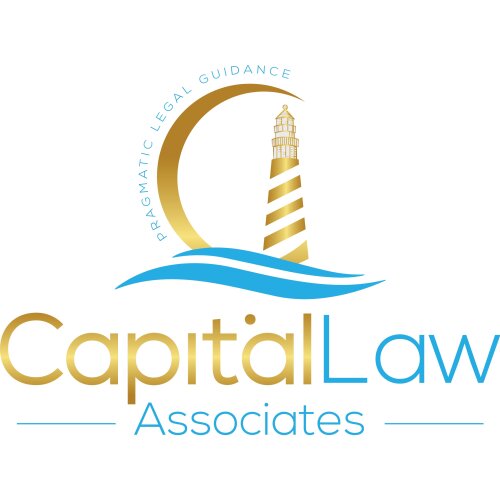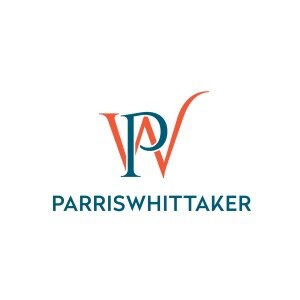Best FDA Law Lawyers in Nassau
Share your needs with us, get contacted by law firms.
Free. Takes 2 min.
List of the best lawyers in Nassau, Bahamas
About FDA Law in Nassau, Bahamas
FDA Law in Nassau, Bahamas generally refers to the body of law governing the regulation, approval, importation, marketing, and use of food, drugs, and certain medical devices. While the United States maintains a specific Federal Drug Administration (FDA), the Bahamas addresses these matters through its own laws and regulations managed by local governmental bodies. FDA-related law in the Bahamas encompasses issues such as food safety, the pharmaceutical industry, labeling requirements, import and export controls, licensing, and the oversight of health products sold to the public. Because Nassau is the commercial center of the Bahamas, many businesses and individuals seek expert legal guidance to ensure compliance with these intricate regulations.
Why You May Need a Lawyer
Seeking legal advice in FDA Law may be necessary for several reasons in Nassau, Bahamas:
- Importing or distributing food, drugs, or medical devices in the Bahamian market
- Ensuring that product labeling and advertising comply with Bahamian regulations
- Applying for and maintaining proper licenses or permits required to sell FDA-regulated products
- Defending against enforcement actions or responding to product recalls and regulatory investigations
- Advising on the compliance of business practices and operations with local health and safety standards
- Assisting with the registration of new products or technologies
- Guiding through the resolution of disputes arising from alleged non-compliance or damages
- Understanding the procedures for clinical trials or research conducted in the Bahamas
- Advising on import-export controls specific to pharmaceuticals and devices
- Providing ongoing compliance support to avoid costly sanctions or product seizures
Local Laws Overview
In Nassau, FDA Law falls under several pieces of legislation and regulatory frameworks overseen by the Ministry of Health and other governmental authorities. Key aspects include:
- The Food Act and Regulations, governing the safety and standards of food sold and imported
- The Dangerous Drugs Act, controlling substances classified as controlled drugs, their storage, distribution, and use
- Pharmacy Act and Pharmacy Regulations, covering licensing, distribution, and quality control for pharmaceutical products
- Labelling requirements ensuring that consumers receive accurate information about ingredients, nutritional content, and expiry dates
- Import permits and customs controls, which outline strict entry requirements for food, drugs, and medical devices entering the Bahamas
- Enforcement powers, which allow regulatory bodies to carry out inspections, seize non-compliant products, and impose penalties or prosecution for violations
Compliance with these laws is essential for businesses and individuals alike, as the authorities have a wide scope for enforcement and can levy significant consequences for violations.
Frequently Asked Questions
What is FDA Law in the Bahamas and who enforces it?
In the Bahamas, FDA Law describes the rules and practices regulating food, drugs, cosmetic products, and certain medical devices. It is enforced primarily by the Ministry of Health, Public Hospitals Authority, and agencies responsible for food safety and pharmaceuticals.
Do I need a license to import pharmaceutical products into Nassau?
Yes, importers of pharmaceutical products must obtain the appropriate licenses and permits and comply with all import and customs regulations as specified by the Ministry of Health and other authorities.
What are the labeling requirements for food and drugs in the Bahamas?
All products must bear clear labels indicating ingredients, nutritional information, manufacturer details, and expiration dates. Labels must also be truthful and compliant with Bahamian regulations to avoid misleading consumers.
Who regulates the safety of medical devices in Nassau?
Medical devices are regulated by the Ministry of Health and may also be subject to oversight by other health and standards authorities depending on the type of device.
What happens if I fail to comply with FDA regulations?
Non-compliance can result in product seizures, fines, legal sanctions, revocation of licenses, damage to business reputation, or even criminal prosecution in severe cases.
Are there restrictions on advertising food and drugs?
Yes, advertising must be truthful, non-misleading, and not make unsubstantiated health claims. All advertisements are subject to review and legal action if found to be in violation of local law.
How are controlled substances handled in Nassau?
Controlled substances are subject to strict regulation under the Dangerous Drugs Act. Their import, export, distribution, sale, and prescription are closely monitored and require special licenses.
Can a foreign company market health products in the Bahamas?
Yes, but foreign companies must comply with all applicable laws regarding registration, importation, labeling, and selling, and may require a local agent or representative.
What should I do if my product is recalled by authorities?
You should immediately comply with all recall procedures, remove affected products from sale, cooperate with authorities, and consult a lawyer to navigate the legal and reputational aspects.
Where can I find updates or official guidance on FDA Law in Nassau?
Updates are typically published by the Ministry of Health and other relevant regulatory agencies. Legal counsel or local trade associations can also provide guidance and updates on changes to the law.
Additional Resources
If you need further information or support regarding FDA Law in Nassau, Bahamas, consider exploring these resources:
- Ministry of Health Bahamas - oversees health products, food and drug safety, and regulatory compliance
- Bahamas Bureau of Standards and Quality - provides guidance on product standards and safety requirements
- Bahama Public Hospitals Authority - manages policies related to pharmaceuticals used in public health facilities
- Bahamian Customs Department - handles import and export regulations and customs requirements
- Private local law firms experienced in food and drug regulatory law
- Trade and industry associations related to food, pharmaceuticals, and medical devices
Next Steps
If you require legal assistance in FDA Law in Nassau, Bahamas, follow these essential steps:
- Assess your specific legal needs, whether related to importation, compliance, licensing, or enforcement matters.
- Gather all relevant documentation pertaining to your products, business practices, or any regulatory correspondence.
- Contact a qualified Bahamian lawyer or law firm with experience in FDA or regulatory law for tailored legal advice.
- Consult regulatory authorities as needed to clarify current requirements or to report issues.
- Stay informed by subscribing to updates from governmental health agencies and attending industry briefings.
- Continue to review your compliance policies and business practices with expert legal guidance to minimize risks and protect your interests.
Taking prompt and informed action can help ensure your compliance with Bahamian FDA laws and reduce the risk of legal complications.
Lawzana helps you find the best lawyers and law firms in Nassau through a curated and pre-screened list of qualified legal professionals. Our platform offers rankings and detailed profiles of attorneys and law firms, allowing you to compare based on practice areas, including FDA Law, experience, and client feedback.
Each profile includes a description of the firm's areas of practice, client reviews, team members and partners, year of establishment, spoken languages, office locations, contact information, social media presence, and any published articles or resources. Most firms on our platform speak English and are experienced in both local and international legal matters.
Get a quote from top-rated law firms in Nassau, Bahamas — quickly, securely, and without unnecessary hassle.
Disclaimer:
The information provided on this page is for general informational purposes only and does not constitute legal advice. While we strive to ensure the accuracy and relevance of the content, legal information may change over time, and interpretations of the law can vary. You should always consult with a qualified legal professional for advice specific to your situation.
We disclaim all liability for actions taken or not taken based on the content of this page. If you believe any information is incorrect or outdated, please contact us, and we will review and update it where appropriate.

















